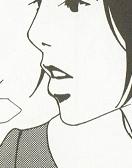Patrick Radden Keefe: Say Nothing. A True Story of Murder and Memory in Northern Ireland.
Richard Rhodes: The Making of the Atomic Bomb.
Nathalie Olah: Steal As Much As You Can: How to Win the Culture Wars in an Age of Austerity.
Anna Wiener: Uncanny Valley. A Memoir.
Fiction:
Annalee Newitz: The Future of Another Timeline.
Rebecca Barrow: This Is What It Feels Like.
Charlie Jane Anders: The City in the Middle of the Night.
Chana Porter: The Seep.
N.K. Jemisin: The City We Became.
William Gibson: Agency.
Tiffany Tsao: The Majesties.
Holly Throsby: Goodwood.
Claire O'Dell: The Hound of Justice.
Emily St. John Mandel: The Glass Hotel.
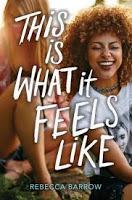
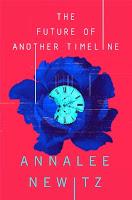 Tess, one of the main protagonists in Annalee Newitz' The Future of Another Timeline, exists in a world that is altered by an ancient, mysterious technology - portals that can take travellers to the past. Newitz imagines this world altered in a way that feels familiar, and right: the existence of these portals has created a battle between Tess and her friends, the Daughters of Harriet, who are advancing and defending the rights of women and LGBTQIA+ people against conservative regressive forces who are attempting the opposite. These men travel through time to prevent critical moments for the advancement of rights, and it's hard not to see this as a reflection on our own world, where time travel doesn't exist but no progress can ever be taken for granted, or relied on, for as long as there are people in power who think that others are less deserving of equality than they are. This is a beautiful book, one that progresses forward and backwards in time to the beat of riot grrrl (a beautiful detail is the flashbacks to the girls' devotion to a band called 'Million Eyes' and its lead singer, Kathleen Hanna). And it's a great book in conjunction with Rebecca Barrow's This Is What It Feels Like, which is not about time travel but seems just as energetically informed by the spirit of riot grrrl, if it had overcome its own limitations and been more inclusive. Three high school girls used to be in band called Fairground, but their friendship fell apart - but now they come back together, and overcome obstacles, and find their love for music and for each other again.
Tess, one of the main protagonists in Annalee Newitz' The Future of Another Timeline, exists in a world that is altered by an ancient, mysterious technology - portals that can take travellers to the past. Newitz imagines this world altered in a way that feels familiar, and right: the existence of these portals has created a battle between Tess and her friends, the Daughters of Harriet, who are advancing and defending the rights of women and LGBTQIA+ people against conservative regressive forces who are attempting the opposite. These men travel through time to prevent critical moments for the advancement of rights, and it's hard not to see this as a reflection on our own world, where time travel doesn't exist but no progress can ever be taken for granted, or relied on, for as long as there are people in power who think that others are less deserving of equality than they are. This is a beautiful book, one that progresses forward and backwards in time to the beat of riot grrrl (a beautiful detail is the flashbacks to the girls' devotion to a band called 'Million Eyes' and its lead singer, Kathleen Hanna). And it's a great book in conjunction with Rebecca Barrow's This Is What It Feels Like, which is not about time travel but seems just as energetically informed by the spirit of riot grrrl, if it had overcome its own limitations and been more inclusive. Three high school girls used to be in band called Fairground, but their friendship fell apart - but now they come back together, and overcome obstacles, and find their love for music and for each other again. 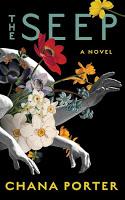
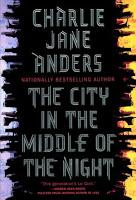 In Charlie Jane Anders' The City in the Middle of the Night, we travel to a tidally locked planet that has become the future of humanity after the destruction of its original homeworld, and yet also like a prison in which warring factions deal differently with the lack of a night and a day, a clear and familiar rhythm of life. Because we can never truly leave ourselves behind, regardless of how far we travel, this transplanted humanity is not very different from what came before - it regards the existing civilization on this planet as too alien to communicate with, and as nothing but prey, once again wreaking havoc on the environment. In ascribing otherness to these lifeforms instead of attempting to understand their existence and complex society, humanity is also alienated from its new habitat, and exists in a persistently depressed state. The novel centres on two friends, Sophie and Bianca, who are torn apart when the strictly regulated society of their hometown exiles Sophie, who goes on a different path from everyone else - she realises that the other lifeforms inhabiting this planet are complex and curious. In the course of the novel, Sophie realises that the only way to exist meaningfully in this utterly new place is to become a hybrid between the old and the new. Bianca, who personifies humanity as it was, as it destroyed what it had, turns into an antagonist. This is a beautiful, harrowing piece of science fiction, close to Ursula K. Le Guin, demanding curiosity instead of colonialism.
In Charlie Jane Anders' The City in the Middle of the Night, we travel to a tidally locked planet that has become the future of humanity after the destruction of its original homeworld, and yet also like a prison in which warring factions deal differently with the lack of a night and a day, a clear and familiar rhythm of life. Because we can never truly leave ourselves behind, regardless of how far we travel, this transplanted humanity is not very different from what came before - it regards the existing civilization on this planet as too alien to communicate with, and as nothing but prey, once again wreaking havoc on the environment. In ascribing otherness to these lifeforms instead of attempting to understand their existence and complex society, humanity is also alienated from its new habitat, and exists in a persistently depressed state. The novel centres on two friends, Sophie and Bianca, who are torn apart when the strictly regulated society of their hometown exiles Sophie, who goes on a different path from everyone else - she realises that the other lifeforms inhabiting this planet are complex and curious. In the course of the novel, Sophie realises that the only way to exist meaningfully in this utterly new place is to become a hybrid between the old and the new. Bianca, who personifies humanity as it was, as it destroyed what it had, turns into an antagonist. This is a beautiful, harrowing piece of science fiction, close to Ursula K. Le Guin, demanding curiosity instead of colonialism.I find it difficult to describe Chana Porter's The Seep - a novel that explores humanity utterly altered by an alien life form that provides endless potentialities, and yet does not provide an answer for what any of it means. It's a rare, imaginative feat - the idea of endless possibilities for life without end and limits appears to create boundaries and to break connections, if anything, as much as it pretends to create a better version of humanity. Sometimes it's VanderMeerian biohorror, sometimes it's just the captivating protagonist Trina, navigating a now-unfamiliar world and the grief of a lost life-long relationship and trying to find a way to still help.
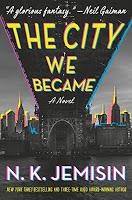 Apart from William Gibson delivering the second entry into his newest trilogy, Agency (for having it, not being one), N.K. Jemisin has also begun a new trilogy following Broken Earth. In The City We Became, New York City is the most recent city in the world to cross the threshold into becoming its own entity, a struggle that includes becoming literally personified, and facing off against other forces that wish it to become a generic non-place and destroy its spirit utterly. It being NYC, each borough becomes personified in a person as well, carrying the individual histories and culture within them. Four of them join together in the fight for their city whereas the fifth one proves that sometimes the political boundaries of a city do not correspond with its true ones (probably a move New Yorkers understand more than people who have never been there, but I did grow up on the wrong side of the Danube).
Apart from William Gibson delivering the second entry into his newest trilogy, Agency (for having it, not being one), N.K. Jemisin has also begun a new trilogy following Broken Earth. In The City We Became, New York City is the most recent city in the world to cross the threshold into becoming its own entity, a struggle that includes becoming literally personified, and facing off against other forces that wish it to become a generic non-place and destroy its spirit utterly. It being NYC, each borough becomes personified in a person as well, carrying the individual histories and culture within them. Four of them join together in the fight for their city whereas the fifth one proves that sometimes the political boundaries of a city do not correspond with its true ones (probably a move New Yorkers understand more than people who have never been there, but I did grow up on the wrong side of the Danube). 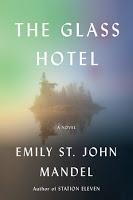 There's barely a book that feels as essential to this moment as Emily St. John Mandel's Station Eleven, which is on the surface about a world after a deadly pandemic that actually does wipe out civilization as we know it, but beyond that, about the purpose and essential nature of art and human companionship - in short, about why we should survive, now how. Mandel's newest novel, The Glass Hotel, is inspired by Bernie Madoff's Ponzi scheme (and it may be a good idea to read a non-fiction account of that, for example Diana B. Henriques The Wizard of Lies) but centres on a brother and sister whose lives become entangled in that of the fictional Madoff, Jonathan Alkaitis. It's an expansive story with many characters, but driven at its core by grief and loss, and making sense of oneself after suffering the kind of defeats that seem to be impossible to overcome. Vincent - who begins and ends in the service industry, but in-between becomes Alkaitis' partner right before his scheme collapses - is a captivating woman, and Mandel travels to locations that feel as strange and foreign as Station Eleven's post-apocalyptic world.
There's barely a book that feels as essential to this moment as Emily St. John Mandel's Station Eleven, which is on the surface about a world after a deadly pandemic that actually does wipe out civilization as we know it, but beyond that, about the purpose and essential nature of art and human companionship - in short, about why we should survive, now how. Mandel's newest novel, The Glass Hotel, is inspired by Bernie Madoff's Ponzi scheme (and it may be a good idea to read a non-fiction account of that, for example Diana B. Henriques The Wizard of Lies) but centres on a brother and sister whose lives become entangled in that of the fictional Madoff, Jonathan Alkaitis. It's an expansive story with many characters, but driven at its core by grief and loss, and making sense of oneself after suffering the kind of defeats that seem to be impossible to overcome. Vincent - who begins and ends in the service industry, but in-between becomes Alkaitis' partner right before his scheme collapses - is a captivating woman, and Mandel travels to locations that feel as strange and foreign as Station Eleven's post-apocalyptic world.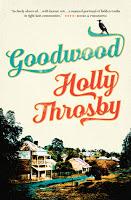
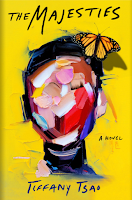 Tiffany Tsao's The Majesties is a family portrait, told after the end of that family by an unreliable narrator whose identity is only truly revealed at the end of the book. It's a thriller in the sense of revealing the precise course of on unimaginable crime after it has already occurred, but not the way that Rian Johnson's Knives Out does (which, in many ways, felt closer to The Majesties than the more often quoted Crazy Rich Asians did). In Holly Throsby's Goodwood, two disappearances shake a town and through the eyes of Jean, we slowly make our way towards the realisation that these are two closely linked crimes, happening in the context of complicated community drama in a place that feels like it doesn't have an outside anymore, and could exist anywhere in the world. This is also some of the most unusual storytelling and perspective I've read in a while.
Tiffany Tsao's The Majesties is a family portrait, told after the end of that family by an unreliable narrator whose identity is only truly revealed at the end of the book. It's a thriller in the sense of revealing the precise course of on unimaginable crime after it has already occurred, but not the way that Rian Johnson's Knives Out does (which, in many ways, felt closer to The Majesties than the more often quoted Crazy Rich Asians did). In Holly Throsby's Goodwood, two disappearances shake a town and through the eyes of Jean, we slowly make our way towards the realisation that these are two closely linked crimes, happening in the context of complicated community drama in a place that feels like it doesn't have an outside anymore, and could exist anywhere in the world. This is also some of the most unusual storytelling and perspective I've read in a while.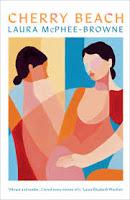 In Laura McPhee-Browne's Cherry Beach, the
In Laura McPhee-Browne's Cherry Beach, the 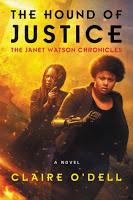 close friendship between Ness and Hetty, transplanted from Melbourne to Toronto, veers into the surreal and horrible when Hetty begins to lose her grip on reality and drifts away, and Ness can't figure out what to do to save the woman she's been in love with since childhood.
close friendship between Ness and Hetty, transplanted from Melbourne to Toronto, veers into the surreal and horrible when Hetty begins to lose her grip on reality and drifts away, and Ness can't figure out what to do to save the woman she's been in love with since childhood.And in Claire O'Dell's The Hound of Justice (the second entry after A Study in Honor into this alternate universe Sherlock Holmes cover), Dr. Janet Watson and the mysterious agent of some agency Sara Holmes go deep into the dangerous South of this civil war torn alternate history United States to chase war profiteer and villain Nadine Adler, whose pharmaceutical empire has tested on and killed soldiers on both sides of the line. Janet Watson still struggles with her new prosthesis, her war trauma, and trying to become a surgeon again, and Sara Holmes remains distant and unknowable, as I suppose she should be as per the original material.
LitHub: Jenny Odell and Wendy Liu on Liberating Ourselves From Usefulness, April 13, 2020
Undark: Marking Grim Milestones, the World Takes Stock of a New Normal, April 4, 2020
LARB: COVID and Community, March 30, 2020.
The Atlantic: How the Pandemic Will End, March 25, 2020.
Vox: Deciem fueled the skin care boom. Then it almost went bust., March 18, 2020
The Oxford American: An Intersection at the End of America, March 17, 2020
n+1: And Then the Brenner Was Closed, March 17, 2020
The Atlantic: The Extraordinary Decisions Facing Italian Doctors, March 11, 2020
The Atlantic: Cancel Everything, March 10, 2020
The Sun: We Will Be Seen; Tressie McMillan Cottom On Confronting Racism, Sexism, And Classism, February 2020
The Atlantic: You’re Likely to Get the Coronavirus, February 24, 2020
Ruby Tandoh on Medium: Empire of Seeds. The Life and Dreams of Esiah Levy, February 19, 2020
n+1: A Very Brexit Party, February 10, 2020
The Saturday Paper: Christmas Island and the rise of mandatory detention, February 8, 2020
Buzzfeed: How Margot Robbie Changed Her Hollywood Destiny, February 7, 2020
Vanity Fair: Daniel M. Lavery Comes Unstuck, February 7, 2020
The New York Times: Inside the Race to Contain America’s First Coronavirus Case, February 5, 2020
The Cut: 100 Women vs. Harvey Weinstein, January 2020
The New Yorker: N.K. Jemisin's Dream Worlds, January 27, 2020
Ars Technica: Deadly fungus became resistant to all existing drugs in 3 unlinked US patients, January 10, 2020
Slate: Australia Was Warned, January 9, 2020
The New Yorker: The Killing of Qassem Suleimani Is Tantamount to an Act of War, January 3, 2020
